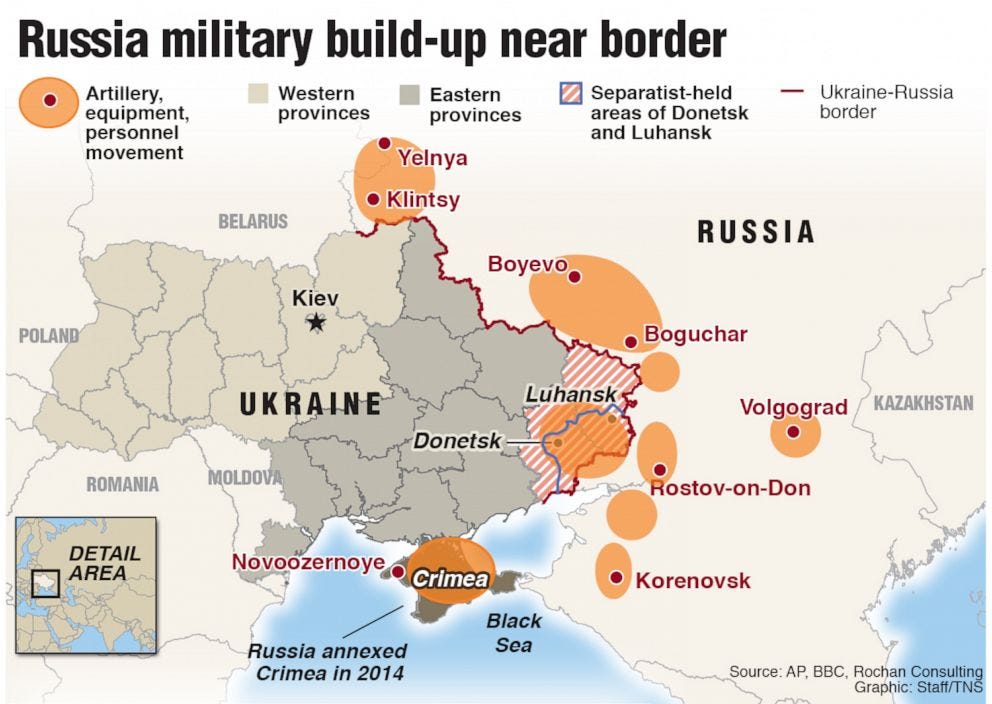Welcome to the eighth edition of my newsletter, The Debatable Land. As always, please feel free to share. Those of you who do so are amongst the righteous.
Like putting a revolver on stage in the first act, if you amass 100,000 troops on another country’s border you expect something to go bang before the drama’s conclusion. The rules all but require it. And this, I think, is doubly so if the act of mobilisation is predicated upon a sense you’re not receiving your due share of respect.
It would be pleasing to be wrong about this but it therefore seems more likely than not - to me, anyway - that Russia will have to move against Ukraine sooner rather than later and even, perhaps especially, if it is not obvious what Russia can hope to achieve from doing so. This is a matter of psychology as much as of politics.
And it is based upon this fundamental reality: Russia, or Vladimir Putin anyway, does not - indeed cannot - accept Ukraine’s independence. It is a fake country created by bad hist…



